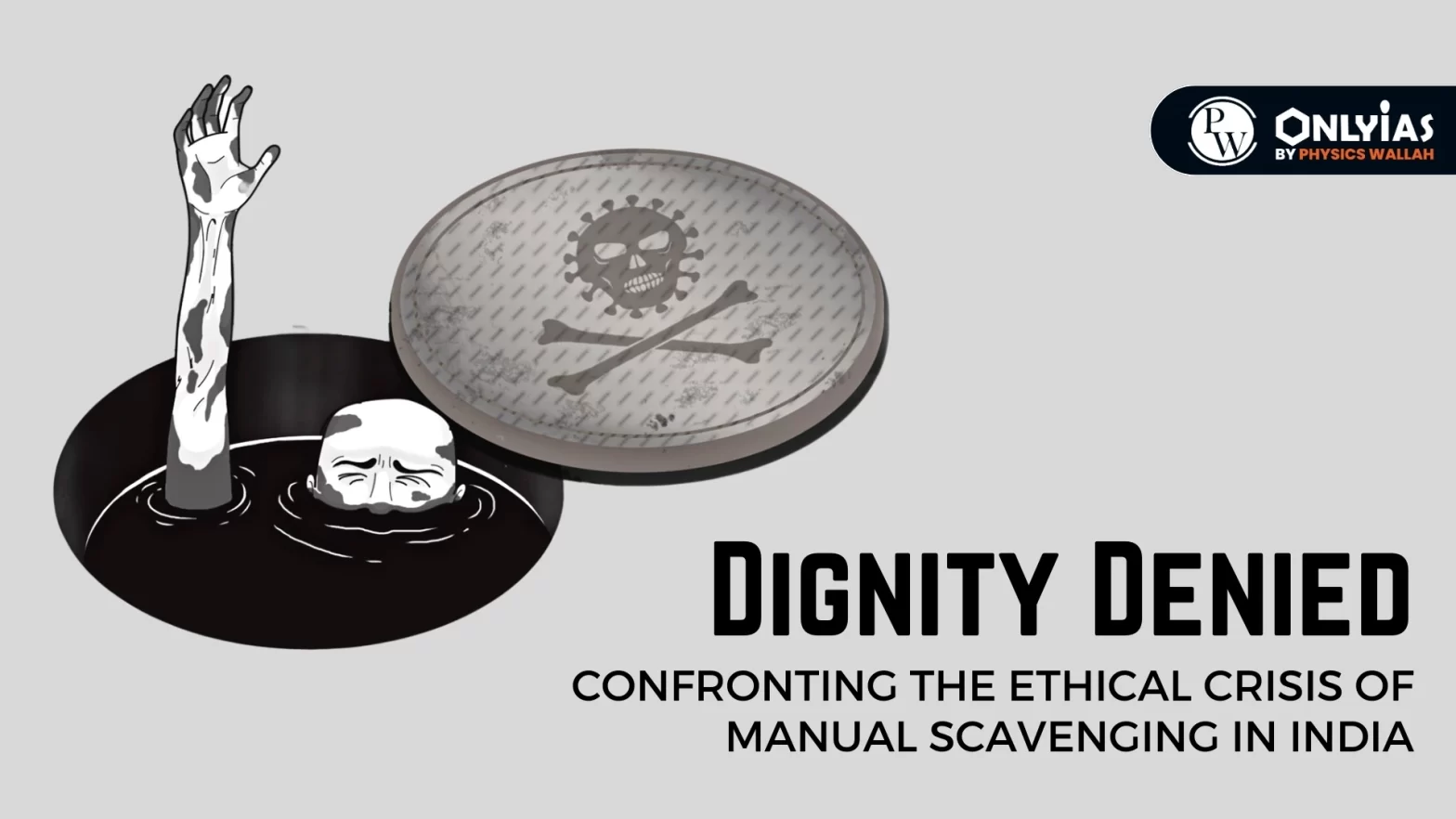Dignity and Decency: Understanding Manual Scavenging in India
- Manual Scavenging in India refers to the practice of removing human and animal waste/excreta using brooms, tin plates and baskets from dry latrines and carrying it on the head to disposal grounds some distance away.
Ethical and Legal Concerns Surrounding Manual Scavenging in India
- Against Constitutional Values: Ethical Denial of Right to Life with dignity under Article 21 of the Constitution
- Against Humanity: Freedom to choose livelihood
- Caste based Discrimination: Manual scavenging in India is historically linked to the caste system in India. The elites assigned the most lowly and polluting jobs for members of the Dalit community.
- Deep sense of apathy by Government: India is still a long way from the rehabilitation of manual scavengers. Effective implementation of associated schemes is a must.
- Violation of laws of Parliament: As per the Prohibition of Employment as Manual Scavengers and their Rehabilitation Act, 2013 (PEMSR), manual scavenging in India is banned under this act.
- Its practice is the violation of the Parliamentary laws.
Conclusion:
To get positive results, there is a need to generate awareness, need for adoption of technology, strict enforcement of laws and a comprehensive rehabilitation package is required.
![]() 23 Oct 2023
23 Oct 2023
